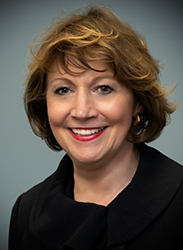
An occasional blogpost from Lander Medlin, APPA’s Executive Vice President
COVID-19: Medical Guidance and Campus Response
March 30, 2020 — We are extremely pleased with the record turnout for last Friday’s COVID-19 Town Hall. We actually exceeded our capacity. However, it was recorded and has already been prominently added to our updated COVID-19 resources page on APPA’s website.
“Exponentiation is the rule. A fact we must abide,” recently said Bill Gates, former CEO of Microsoft and co-founder of the Bill & Melinda Gates Foundation. This is indeed playing out by the unfortunate fact that the U.S. is now #1 in the number of coronavirus cases for any country globally. Although too early to tell, it seems Canada is faring better given their quick reaction time to closing the borders and restrictions through shelter-in-place orders and their stricter adherence to social/physical distancing requirements. With an historic record of 3.3 million Americans filing for unemployment just last week, this global pandemic is certainly taking its toll on everyone financially, physically, socially, and emotionally. Suffice it to say that we have a long road ahead.
We were ecstatic to partner with the ACHA (American College Health Association) and have one of their COVID-19 Task Force members – Dr. Michael Huey, MD and Associate Professor of Family and Preventive Medicine at the Emory University School of Medicine – join our Town Hall. Dr. Huey calmly and adeptly addressed many of our questions about the virology and epidemiology of the virus, its symptoms, how contagious it is, those at risk, and why hand washing is so critical. He also focused on the CDC’s current cleaning guidelines and products along with the importance of and attention to mental well-being during the pandemic. The following are just a few critical points:
- The CDC provides “guidelines.” Your state and local health departments make the final decisions. Follow them first and foremost.
- We are all susceptible. No one is immune. Hence, the absolute necessity for strict adherence to social/physical distancing.
- The virus is highly susceptible to soap and water (emulsification) because of its lipid (fatty) envelope. Therefore, WASH YOUR HANDS FOR 20 SECONDS & OFTEN! Accordingly, post signs using the CDC logo.
- There is NO playbook for handling high-risk employees who work in at-risk positions. Address with your institution’s senior leadership team and if at all possible, deal with each on an individual, case-by-case basis.
- Mental well-being should not be ignored. Remember the stressors are magnified in those on the front-line; those activities in support of essential services – YOU and YOUR STAFF.
It was equally valuable to hear from three educational facilities professionals about what is occurring at their institutions – Canadian institution (Dave Button); small school/academy (Kevin Folsom); and a research university/system (Dave Irvin). A few salient points were:
- Ways of thinking differently about “essential” versus “critical” staff and services to deal with the unique nature of a pandemic, their definitions and impact on union contract language.
- The need to readily adapt to what is quickly becoming our new reality both short and long term.
- Focusing on this situation as a transformational crisis requiring transformational thinking.
- The need for clear and transparent communications to convince our stakeholders that our spaces are safe to occupy.
- The importance of developing a new rapid response communication plan when the coronavirus hits your institution or organization.
- Communicate, collaborate, and pivot in this time of uncertainty. This is an incredibly fluid situation with new facts and data coming at you every few hours (not days). So be prepared to adapt and re-adapt as the situation evolves.
You can access more detailed information and insights from our latest Town Hall recording and COVID-19 resource center.
Dr. Anthony Fauci, Director of the National Institute for Allergy and Infectious Diseases, said, “We cannot dictate the timeline. The virus will dictate the timeline.” It’s a challenging time with huge changes to our lives. Yes, the world is different now.
So, what can you do? You are not powerless. You can control more things than you realize. Making choices around what you can control can and does help you learn to cope. Some examples are:
- Wash hands and face using instructed hygiene protocols;
- Exercise social/physical distancing (it’s not social isolation);
- Stay connected using technology to advantage;
- Stay at home as much as you can, especially given your work requirements;
- Take care of loved ones;
- Be in service to others;
- Find ways to create and sustain joy!
Individual actions can make a collective impact. That is a fact which help mitigate our fears.
As Franklin D. Roosevelt said, “Courage is not the absence of fear, but rather the assessment that something else is more important than fear.” Together we can muster that courage. Together we can and we will get through this.

E. Lander Medlin
APPA Executive Vice President
 Create an Account
Create an Account
 Login/myAPPA
Login/myAPPA
 Bookstore
Bookstore
 Search
Search  Translate
Translate 


Leave a Reply
You must be logged in to post a comment.